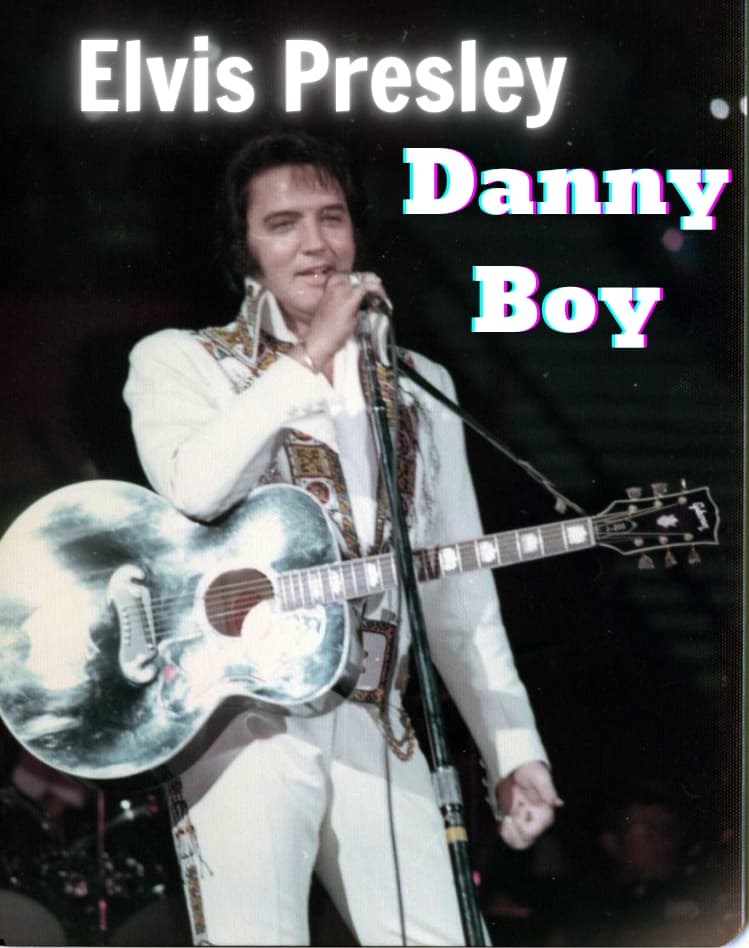
A Father’s Lament, A Son’s Love: The Enduring Heartbreak of “Danny Boy”
Ah, “Danny Boy.” Just the title itself conjures a wave of wistful melancholy for many of us who’ve lived a few decades. For an artist like Elvis Presley, a man whose life was a whirlwind of adulation and, ultimately, profound loneliness, his 1976 recording of this classic carries an almost unbearable weight. Released as part of his From Elvis Presley Boulevard, Memphis, Tennessee album, “Danny Boy” didn’t exactly set the charts ablaze as a single; it wasn’t even released as one. Instead, it was an album track, a deep cut that, for those who truly listened, offered a glimpse into the King’s soul during a particularly turbulent period of his life. The album itself, recorded in Elvis’s famed Jungle Room at Graceland, reached a respectable No. 41 on the Billboard 200 albums chart, but it’s the personal significance of “Danny Boy” that truly resonates.
The story behind Elvis recording “Danny Boy” is steeped in a quiet, yet profound, tribute. It’s widely understood that Elvis sang this song with his beloved father, Vernon Presley, firmly in mind. By 1976, Elvis’s health was in decline, and his emotional state was often fragile. His parents, particularly his mother Gladys, had been the anchors of his life, and after her death in 1958, his bond with Vernon became even more paramount. “Danny Boy” is, at its core, a song of farewell, a tender lament from a parent bidding goodbye to a child who is leaving, perhaps for war, or simply to make their way in the world. The lyrics, penned by Frederic Weatherly in 1910, speak of hope for return, and the poignant promise of a reunion, even if it’s only “in a quiet churchyard.” For Elvis, whose life had been a constant journey away from the normalcy of home, the song must have echoed his own complex feelings about separation, and perhaps, his growing awareness of his own mortality. It’s not hard to imagine him, sitting in the humid Memphis night, pouring his heart into the microphone, thinking of Vernon and the unyielding love that had always been there for him.
The meaning of “Danny Boy” is universally understood as a poignant farewell, a parent’s heartfelt message to a departing child. It speaks of the deep, unconditional love that transcends distance and time, and the yearning for a safe return. “Oh, Danny boy, the pipes, the pipes are calling / From glen to glen, and down the mountain side.” These lines evoke images of a journey, of a life being lived beyond the familiar embrace of home. But it’s the final lines that truly cut to the quick: “And I shall sleep in peace until you come to me.” This isn’t just a simple goodbye; it’s a promise of an enduring bond, a love that waits, even beyond the grave. For Elvis, whose life was a paradox of immense public adoration and intensely private struggles, this sentiment must have resonated deeply. He was, in many ways, constantly saying goodbye – to audiences, to relationships, and ultimately, to parts of himself. His rendition of “Danny Boy” isn’t merely a cover; it’s a deeply personal interpretation, imbued with his own experiences of love, loss, and the ever-present shadow of his own impending departure.
Listening to Elvis’s “Danny Boy” today, decades removed from its recording, is an exercise in profound nostalgia. His voice, matured and bearing the faint signs of wear, carries the melody with a somber dignity. There’s a fragility there, a vulnerability that was often hidden beneath the rock and roll swagger. It reminds us of a time when music could be unashamedly sentimental, when a simple melody and heartfelt lyrics could bring tears to the eyes. For those of us who grew up with Elvis’s music, this particular track feels like a quiet conversation with an old friend, a moment of shared reflection on the passage of time, the enduring power of family, and the bittersweet beauty of farewells. It’s a reminder that even the King, with all his fame and fortune, was ultimately just a man, grappling with the universal emotions of love and loss, and finding solace in the timeless embrace of a song.